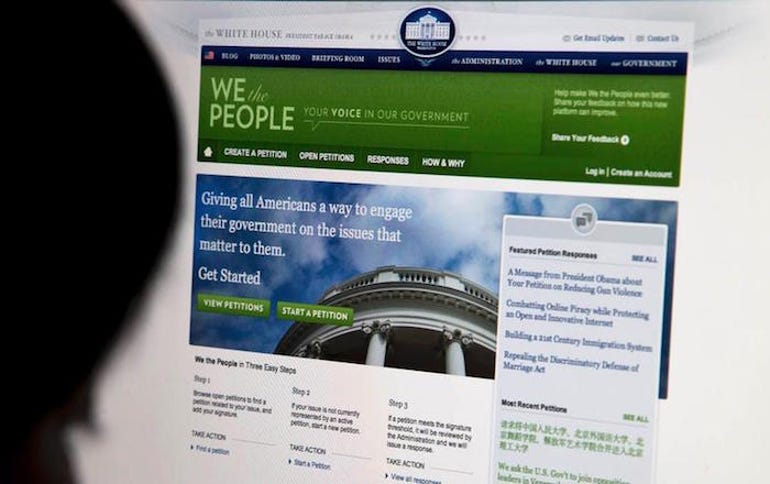
White House will not force FBI to get a warrant for email data


The Obama administration will not force federal agencies to get a warrant to access older emails, despite a growing effort from lawmakers and the public alike to change the law.
As the law stands, the Electronic Communications Privacy Act (ECPA) allows federal agencies to access opened email data older than six months with a subpoena. Anything under the six-month period still requires a warrant. The law has not been updated since it was first enacted in 1986, failing to account for technological developments like limitless online storage.
Following a heavy backlog, the White House responded Tuesday to a 2013 petition, signed by 113,035 people, demanding that federal agencies including the FBI and the IRS "get a warrant" before accessing email content.
In its response, the White House said that although it agrees the law is "outdated" and "should be reformed," the administration deferred responsibility to Congress for failing to act sooner.
"We know there are still important details being worked out across government and in the halls of Congress. We aren't going to endorse a single ECPA-reform bill at this time. As any given bill goes through committee and makes its way to the House and Senate floors, the draft is negotiated and modified to address concerns and strengthen the bill," said the response.
When asked if the Justice Dept. will now get a warrant, a spokesperson for the Justice Department referred to the petition's response, and declined to comment further.
A spokesperson for the White House National Security Council denied to comment, opting to "let the petition response stand."
Everyone on the same page?
In a rare show of unity in the wake of the Snowden leaks, both the Justice Dept. and tech giants in Silicon Valley agree that ECPA needs reform.
Former US attorney general Eric Holder told the House Judiciary Committee in May 2013 that he supported the idea of requiring the government to get a warrant first. At the time, a Justice Dept. spokesperson told The Washington Post: "There is no principled basis to treat e-mail less than 180 days old differently than e-mail more than 180 days old."
But days prior to Holder's statement, a freedom of information request by the American Civil Liberties Union showed some US attorneys may still have warrantless access to email data, in spite of a 2010 appeals court ruling that warrantless email searches were unconstitutional.
Some email providers, including Microsoft and Google, argued that subpoenas are not enough to turn over the contents of emails and began demanding warrants for email data.
A veto-proof majority
All eyes are now on Congress to amend the law.
But on this rare instance Congress where an overwhelming number of members have pushed for change, procedural issues have halted their reform effort.
Read more on ZDNET:
The bipartisan Email Privacy Act (HR 699), which was supported by Google and other firms when it was first introduced during the last congressional session, will force law enforcement to obtain a warrant before requiring email providers to disclose contents of emails, regardless of how old the emails are.
But the bill was stalled prior to committee stage, reportedly on the "to-do list" of House Judiciary Committee chairman Bob Goodlatte (R-VA, 6th).
On Thursday, Reps. Kevin Yoder (R-KS, 3rd) and Jared Polis (D-CO, 2nd), who introduced the bill earlier this year, said they now have a House supermajority with more than two-thirds of its members supporting the bill.
As the bill stands today, the ECPA reform bill would almost certainly pass.